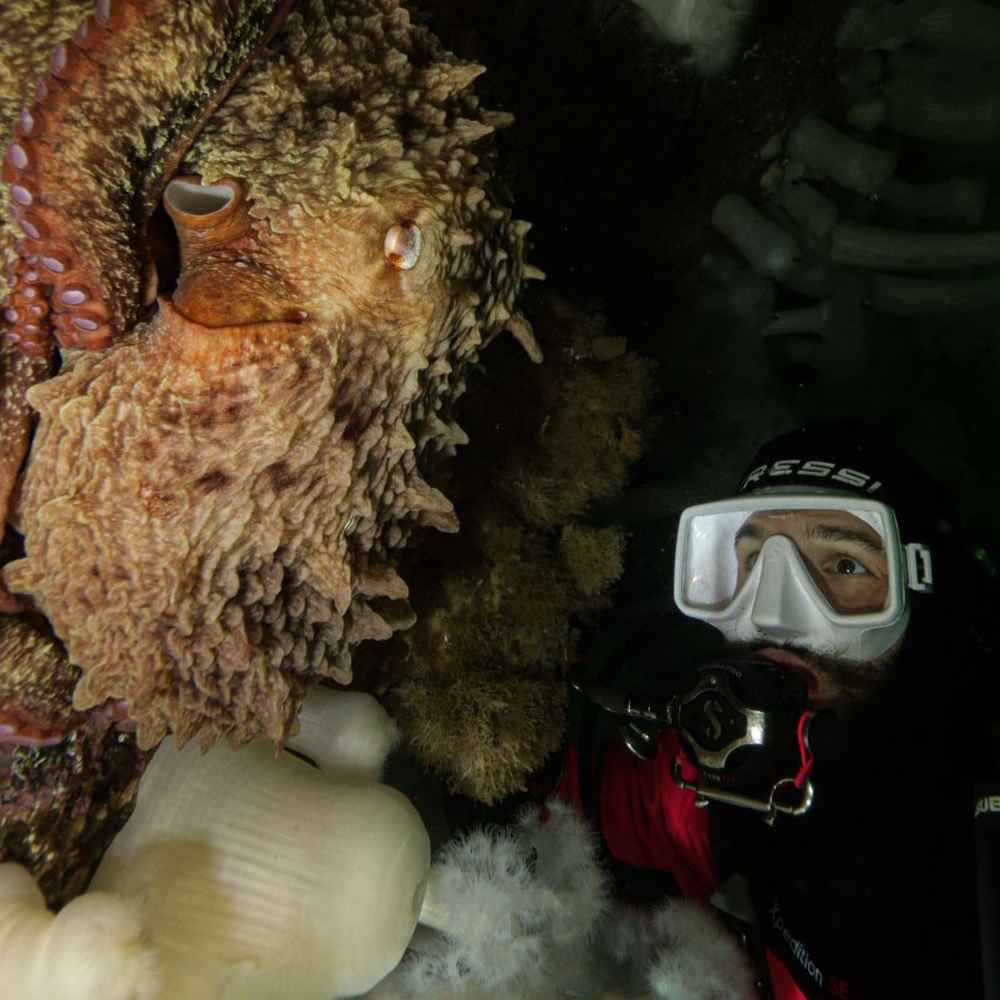Are Octos Right Handed? New Science for Divers
Here in Vancouver, we’re lucky to share the waters with many Giant Pacific Octopuses. They’re a highlight of any dive: graceful, intelligent, curious and wonderfully charismatic. They also have three hearts and eight arms. And now, a new study has taken a closer look at how octopuses use those arms, building what researchers at Florida Atlantic University call a “visual dictionary” of movement.
Researching Giant Pacific Octopus Behaviour
By analysing hours of footage of wild animals, scientists identified a surprisingly structured set of motions that reveal just how versatile these creatures are. The study narrowed things down to four basic kinds of movement, which in turn combine into a range of actions and behaviours.
Some of these behaviours are instantly recognisable to cold water divers. When an octopus stretches the webbing between its arms to envelop prey, it looks almost like a parachute closing in. When it tucks its arms underneath its body to shuffle across the seafloor, it can appear more like a rock than a living animal, helping it slip past predators undetected.
What’s remarkable is that not all arms are used the same way. The front arms are often employed for dexterity — probing, grasping and exploring — while the back arms focus more on mobility, propelling and anchoring. But the beauty of the system is that every arm is also capable of doing it all. If one or two are lost to a predator, another can step in, a bit like swapping the role of a “leg” for a “hand” when needed.
Unlike us, who have clear distinctions between arms and legs, an octopus can constantly reassign roles across its body. At any given moment, different arms may be exploring, camouflaging, crawling, or capturing prey — sometimes all at once.
Cold Water Scuba Divers Love a GPO
For scuba divers in and around Vancouver, it’s confirmation of what we often sense underwater: octopuses are not only masters of disguise but also masters of coordination, able to switch from cautious to bold in an instant.
Watching a Giant Pacific Octopus up close is already unforgettable, but knowing more about the science behind its movements adds another layer of appreciation. These animals are multitaskers on a level that puts most of us to shame, and the Pacific Northwest is one of the best places in the world to see them in their natural habitat.
If you want the chance to encounter one in the wild, why not join us for an upcoming cold water dive in Vancouver? Or take your first step and get your scuba certification! Your next underwater adventure could bring you within arm’s reach.












